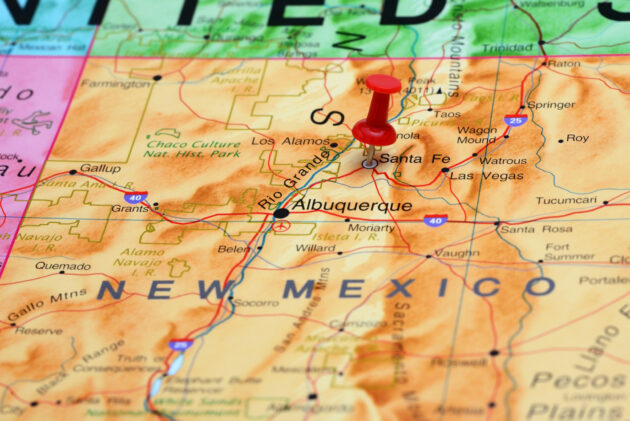Operating into the United States involves another level of compliance, especially when it comes to U.S. motor carrier safety regulations. You may need to address the Hours-of-Service differences, drug and alcohol testing requirements, and a host of other safety-related responsibilities.
These issues often take priority, and they should because safety is important. But it’s also prudent to consider there are other non-safety-related requirements that apply to motor carriers operating into the United States from Canada.
One set of such requirements comes in the form of state weight-distance taxes. Four states assess weight-mile or weight-distance taxes on motor carriers operating in their states — Kentucky, New Mexico, New York, and Oregon.
These taxes often trip up U.S.-based carriers and may even be more confusing for a Canada-based carrier that operates in the United States. Why? Because many people think these “special” state taxes don’t apply because the operations are already paying fuel taxes through the International Fuel Tax Agreement (IFTA) and registration fees through the International Registration Plan (IRP).
It’s a valid assumption, since the trucking industry is already a heavily taxed industry. Unfortunately, these four states and their special taxes still apply, and they’re above and beyond any other taxes and fees that carriers pay to operate in the United States.
Here’s what you need to know if you’re operating in any of the four states:

Kentucky KYU
Kentucky’s “KYU” weight-mile tax credential applies to vehicles with a gross weight of 60,000 pounds (27,216 kilograms) or more. Carriers subject to the tax must obtain a KYU license. Upon application for the KYU license, the carrier must provide a list of vehicles subject to the weight-distance tax. The KYU is also filed quarterly, unless you elect to trip permit for infrequent trips into or through Kentucky.

New Mexico Weight-Distance Tax
New Mexico’s weight-distance tax applies to vehicles with a gross weight exceeding 26,000 pounds (11,794 kilograms). If regularly operating in New Mexico with applicable vehicles, you’ll want to obtain a weight-distance e-permit. Carriers with two or more trucks must electronically file (e-file) the weight distance tax on a quarterly basis, but all carriers are encouraged to e-file. Trip permits are available at ports of entry.

New York Highway Use Tax
New York’s highway use tax (HUT) applies to trucks, tractors, and other self-propelled vehicles with a gross weight over 18,000 pounds (8,165 kilograms), and certain types of automotive fuel carriers. If operating these types of vehicles into New York, you’ll need to register for the HUT certificate of registration and obtain a HUT decal for each of your vehicles. Tax filing is typically done quarterly in one of two ways: the gross weight method, or the unloaded weight method. You determine how you’d like to file. One way or the other may be more advantageous for you. Be sure to take note of any special recordkeeping you may need to do to comply with this tax.
Alternatively, you can obtain HUT trip permits, but you’re limited to just 10 trip permits per year.

Oregon Weight-Mile Tax
Oregon does not charge fuel taxes under IFTA. Instead, motor carriers operating in the state are subject to the state’s weight-mile tax. This tax applies to vehicles with a gross weight over 26,000 pounds (11,794 kilograms). This tax is filed monthly, with some carriers filing quarterly after a certain time period.
Like the HUT, you can obtain temporary passes (permits) under a temporary account. But if any one vehicle in the fleet exceeds five temporary passes — or if the entire account exceeds 35 temporary passes within one 12-month period — a permanent account would be required.
When it comes to state taxes, or any type of tax in Canada or the United States, understanding your obligations is key. If unsure, you may want to meet with a tax service provider or an accountant for assistance.


